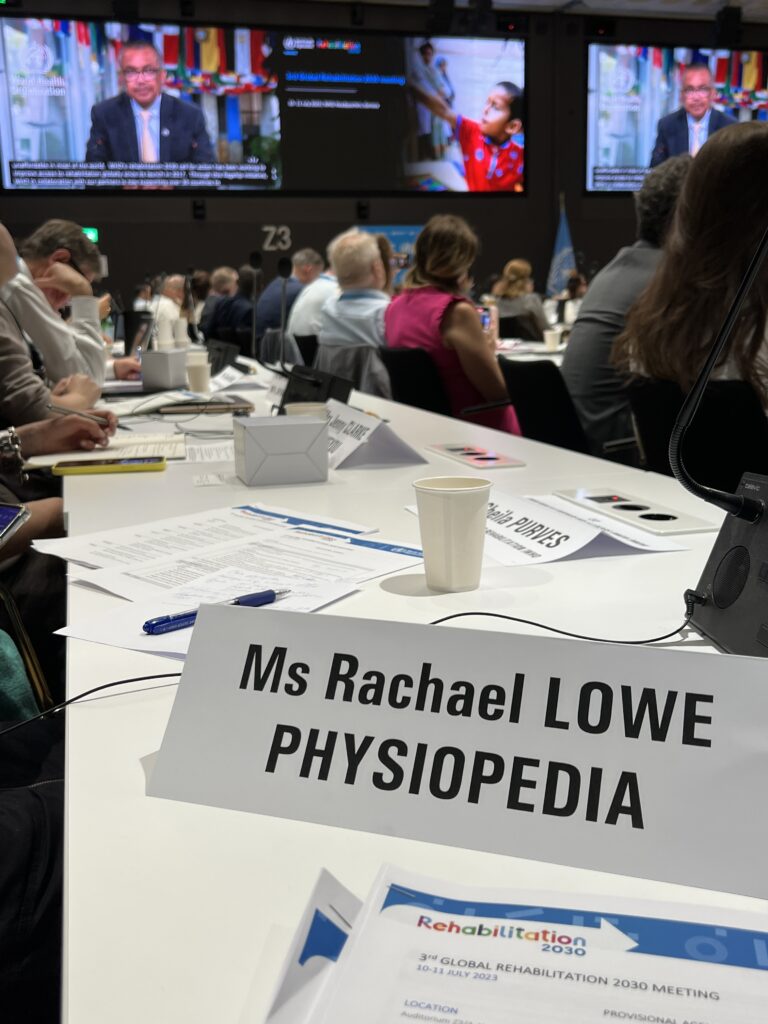The 3rd Global Rehabilitation 2030 Meeting was an opportunity to review progress towards the WHO Rehabilitation 2030 Call to Action and to launch new initiatives and resources to support the future of strengthening rehabilitation in health systems.
The World Health Organization (WHO) has made rehabilitation one of its top priorities through the Rehabilitation 2030 initiative. This initiative seeks to address the shortage of rehabilitation services, particularly in low and middle income countries, through ten priority areas of action.
“The need for rehabilitation is far, far greater than most people assume, more than 2.4 billion people, almost a third of the global population, have health conditions that could benefit from rehabilitation.” Dr Jérôme Salomon, Assistant Director-General and head of Universal Health Coverage at WHO
The 3rd Global Rehabilitation 2030 Meeting took place in Geneva, Switzerland on 10-11 July 2023 and was an opportunity to review progress towards the ten priority areas of action and to launch the World Rehabilitation Alliance (WRA). Rachael Lowe, Physiopedia’s Co-Founder and President attended to represent Physiopedia.

This meeting was the first since adoption of the recent historic resolution on strengthening rehabilitation in health systems, which calls for key actions to be taken by Member States, international organisations and other relevant stakeholders to strengthen rehabilitation in health systems. In line with this, several new WHO tools created to facilitate the implementation of the resolution were introduced:
- WHO policy brief: Strengthening rehabilitation in health emergency preparedness, readiness, response and resilience: policy brief
- WHO Rehabilitation in health financing: Opportunities on the way to Universal Health coverage Financing rehabilitation in health systems
- Package of Interventions for Rehabilitation
- Guide for Rehabilitation Workforce Evaluation
- Routine health information systems rehabilitation toolkit
Physiopedia welcomes these valuable tools and is looking forward to aligning workforce development initiatives, in particular related to the education and professional development resources that we offer and the International Rehabilitation Education and Training Toolkit (IRETT) that we are developing as part of the ReLAB-HS activity.